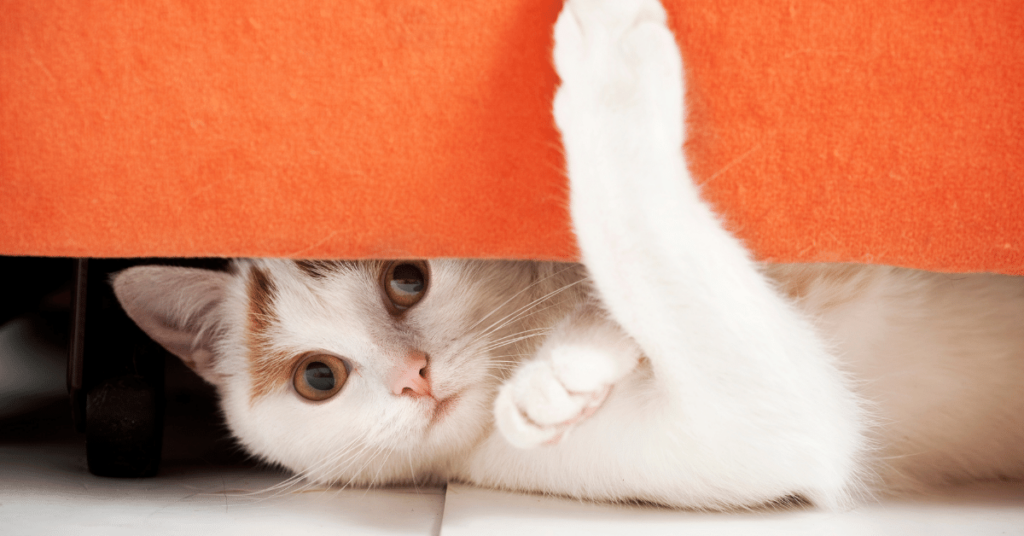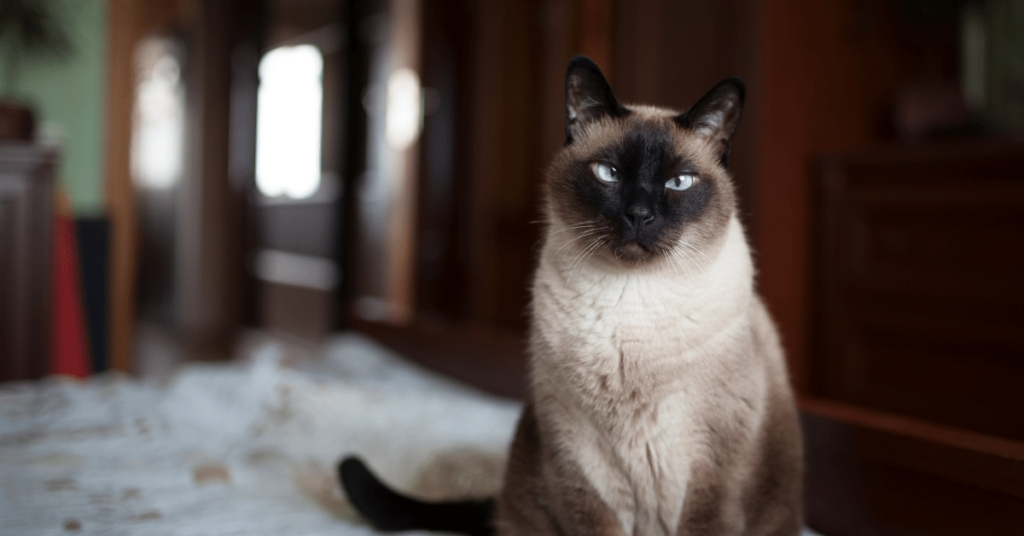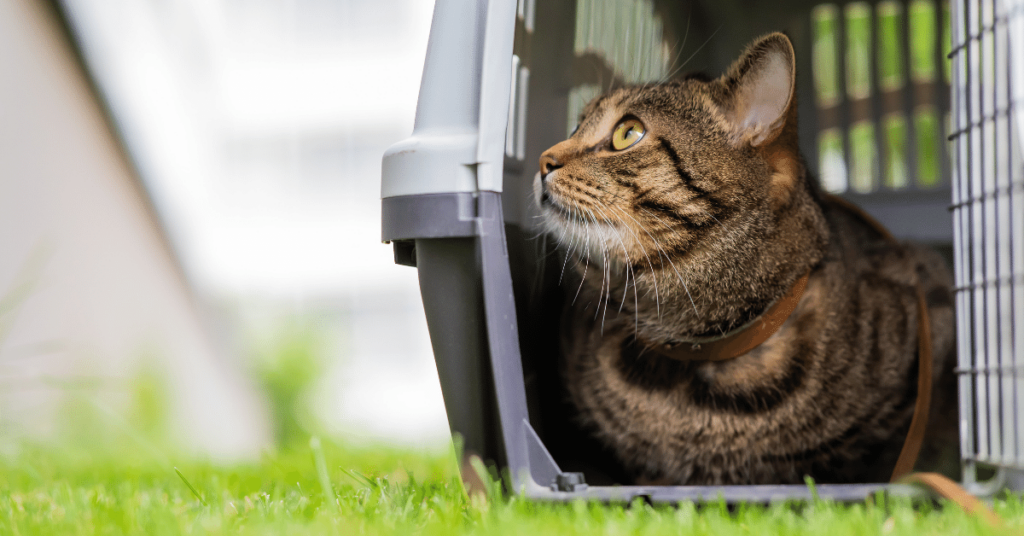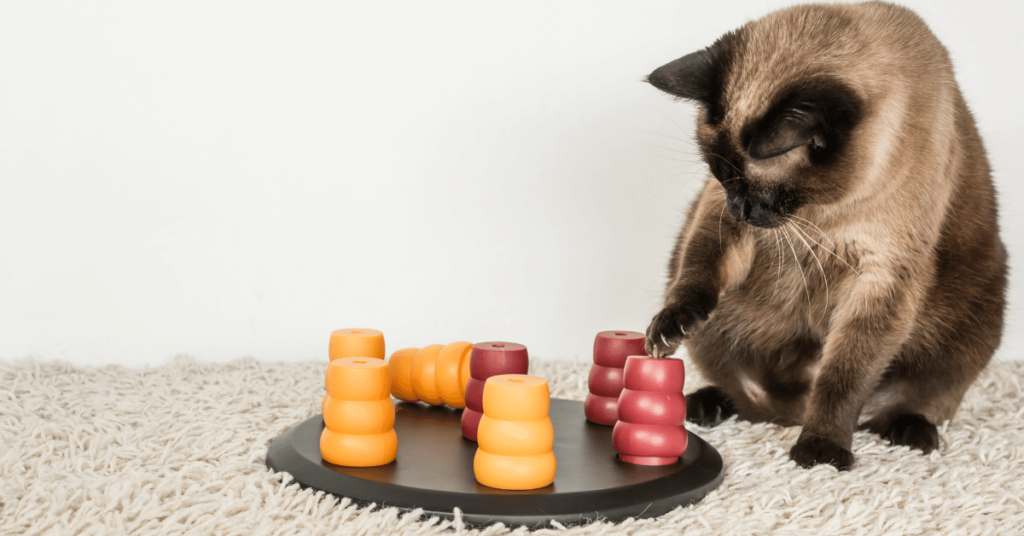Introduction
Cats are known for their independent and aloof nature, but just like humans, they can also experience anxiety and stress. Understanding how to prevent and manage cat anxiety is crucial for the well-being of your furry friend. By creating a calm environment, you can help your cat feel safe and secure. In this article, we will explore some helpful tips and techniques to keep your cat stress-free.
Signs of Cat Anxiety
Before diving into prevention and management techniques, it’s important to recognize the signs of cat anxiety. Cats may exhibit a range of behaviors when they are feeling stressed or anxious. Some common signs include:
- Excessive meowing or vocalization
- Hiding or seeking solitude
- Increased aggression or irritability
- Urinating or defecating outside the litter box
- Excessive grooming, resulting in hair loss or bald patches
- Decreased appetite or weight loss
- Restlessness or pacing
If you notice any of these signs in your cat, it’s important to address the underlying cause of their anxiety and make changes to create a calm environment.
Creating a Safe Space
One effective way to prevent and manage cat anxiety is by providing a safe space for your feline friend. Cats are territorial animals and having their own designated area can help them feel secure. Here’s how you can create a safe space for your cat:
1. Set up a Quiet Retreat
Designate a quiet area in your home where your cat can retreat to when they need some alone time. This could be a spare room, a cozy corner, or even a cat tree or shelf. Make sure the space is comfortable and free from any loud noises or disturbances.
2. Provide Hiding Spots
Cats often feel safer when they have hiding spots to retreat to. Place some cat-friendly hiding spots around your home, such as cardboard boxes, cat tunnels, or even specially designed cat beds with hidden compartments. These hiding spots can help your cat feel secure during times of stress.
3. Use Feliway Diffusers
Feliway diffusers emit synthetic pheromones that mimic the natural facial pheromones of cats. These pheromones have a calming effect on cats and can help reduce anxiety. Place Feliway diffusers in the areas where your cat spends the most time, such as their safe space or sleeping area.
Enriching the Environment
Beyond creating a safe space, it’s important to enrich your cat’s environment to prevent boredom and reduce anxiety. Cats are natural hunters and providing them with mental and physical stimulation can help alleviate stress. Here are some ways to enrich your cat’s environment:
1. Playtime
Regular interactive play sessions with your cat can help release pent-up energy and prevent boredom. Use toys that mimic prey, such as feather wands or laser pointers, to engage your cat in active play. Play sessions not only provide physical exercise but also strengthen the bond between you and your cat.
2. Puzzle Feeders
Instead of feeding your cat from a regular bowl, consider using puzzle feeders. These interactive feeders require your cat to work for their food, stimulating their natural hunting instincts. Puzzle feeders provide mental stimulation and can help alleviate boredom and anxiety.
3. Vertical Space
Cats love to climb and observe their surroundings from an elevated position. Provide vertical space in your home, such as cat trees or wall shelves, where your cat can perch and feel in control. Having access to vertical space helps cats feel more secure and less anxious.
Health and Diet
A cat’s overall health and diet can also contribute to their anxiety levels. Ensuring your cat is in good health and providing a balanced diet is essential. Here are some tips to promote a healthy lifestyle for your feline friend:
1. Regular Veterinary Check-ups
Schedule regular check-ups with your veterinarian to ensure your cat is in optimal health. Discuss any signs of anxiety or stress you have noticed and work with your vet to identify any underlying medical conditions that may be contributing to the anxiety.
2. Balanced Diet
Feed your cat a balanced and nutritious diet that meets their specific dietary needs. Ensure they have access to fresh water at all times. A healthy diet supports overall well-being and can help reduce anxiety.
Conclusion
Preventing and managing cat anxiety is essential for the happiness and well-being of your feline friend. By creating a calm environment, providing a safe space, enriching their environment, and promoting a healthy lifestyle, you can help your cat feel more relaxed and secure. Remember to observe any signs of anxiety and make necessary adjustments to ensure your cat leads a stress-free life. Seek advice from a veterinarian if you are concerned about your cat’s anxiety levels. With your love and care, you can create a peaceful and anxiety-free environment for your beloved furry companion.







